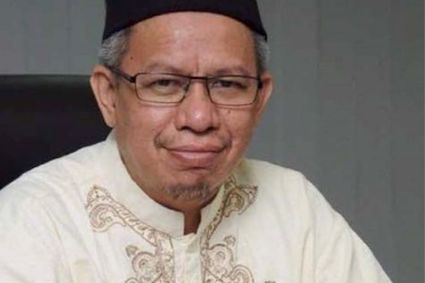Worries over ‘Wahhabi outlook’ of new FT mufti

(FMT) – Feathers have been ruffled within Malaysia’s traditional ulama community over intense lobbying by scholars inclined to the Wahhabi doctrine, hoping to fill the vacant federal territories mufti spot with one of their own.
There are fears that the replacement for Zulkifli Mohamad Al Bakri, who left the post to accept a Cabinet position as the minister for Islamic affairs, could be “someone representing a regressive and restrictive tone of Islam”, a source familiar with such appointments told FMT.
The source said although Zulkifli also carried “some pattern of Salafist views”, he had been more accommodative of Islam’s diverse thoughts during his time as mufti, and rarely made judgments on different schools of thought.
“But his replacement may not be as diplomatic when it comes to pushing through views, especially those which Wahhabism is known for,” the source added.
It is learnt that most of the shortlisted candidates are alumni of the Islamic University of Madinah, an institution funded by the Saudi government to promote its official Wahhabi doctrine, and often seen as a rival to Egypt’s Al Azhar, the seat of traditional Sunni Muslim scholarship.
The candidate must get royal consent from the Yang di-Pertuan Agong, Sultan Abdullah Sultan Ahmad Shah, who is the head of Islam in the federal territories as well as in his home state of Pahang.
Sources say that one name linked to PAS, an academic from Kelantan and a Madinah alumnus, appears to be standing out as a likely candidate for the federal mufti post.
But insiders FMT spoke to said that senior leaders of the Islamist party are not comfortable with his “Wahhabi outlook”, to quote one source.
“His religious views do not blend with the traditionalist position preferred by Abdul Hadi Awang,” the source told FMT, referring to the PAS president who is currently the government’s special envoy to the Middle East.
“He is seen as more receptive to Saudi playing a dominant role in the Muslim world, unlike Hadi who has been very critical of Riyadh’s policies.”
Wahhabism, sometimes used interchangeably with Salafism, has its origins in the teachings of 17th century scholar Muhammad ibn Abd Wahhab, who sought to end practices deemed “un-Islamic” and led a campaign for a return to a more austere version of Islam.
The movement colluded with the Saud family to help set up what is known today as Saudi Arabia. The ideology has been dominant in Saudi Islamic institutions ever since.
Wahhabi ideas have inspired restrictions in Saudi Arabia such as the ban on women driving and the rule that women travellers are to be accompanied by male family members, although these have been eased in recent times while met with resistance from the influential Saudi ulama establishment.
In Malaysia, several Muslim personalities and groups have been accused of spreading the Wahhabi doctrine.
These leaders came into close engagement with Putrajaya under the Najib Razak administration, with some given advisory posts in the Prime Minister’s Office.
Just how influential the Wahhabi lobby was in Putrajaya during that time could be seen in Malaysia’s support of the Saudi military campaign in Yemen, as well as Islamic authorities’ policies against Shia Muslims, the Wahhabis’ arch-enemy in the Middle East.
The alliance was dismantled after Najib’s fall from power, with Dr Mahathir Mohamad seen distancing himself from Riyadh’s claim to Islamic leadership when he organised the Kuala Lumpur Summit late last year.
The names being bandied about as possible replacements for Zulkifli include Umno’s Fathul Bari Mat Jahya, who heads a group of Islamic studies graduates who are virulently pro-Saudi, and Perlis mufti Mohd Asri Zainul Abidin, who himself in the past fought back allegations of promoting Wahhabism.
But a source dismissed these as speculation, saying it would be unwise for authorities to be seen “recycling” candidates from among those linked to former leaders.
“The greatest worry is that the new mufti will not be able to articulate the ethos of Malaysia’s predominantly Sunni Muslims, who more or less frown upon Wahhabism and Salafism,” the source added.

